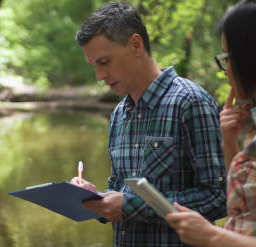When launching a weather balloon, the brand you choose matters. Whether you're conducting a scientific experiment, collecting weather data, or sending a camera to the stratosphere, choosing a trusted manufacturer ensures consistent performance and safety. In this guide, we compare the leading weather balloon brands based on quality, availability, and user reputation.
Top 5 Weather Balloon Brands
-
Kaymont – Industry leader with rigorous testing and professional-grade products.
- – Reseller offering Kaymont and other accessories, great for bundled kits.
-
Pawan (India Meteorological Department) – Government-backed, large-scale supplier used widely in Asia.
-
Hwoyee (China) – Manufacturer with a strong presence in Asia and developing markets; budget-friendly.
-
Totex (Japan) – Longstanding reputation for reliable, high-quality latex balloons favored by educational and government institutions.
Brand Comparison Table
| Brand |
Country |
Known For |
Price Range |
Best For |
| Kaymont |
USA |
High-quality, professional use |
$$$ |
Government, universities, aerospace |
| |
|
|
|
|
| Pawan |
India |
Government contracts, affordability |
$$ |
Developing markets, meteorology |
| Hwoyee |
China |
Mass production, cost-effective |
$ |
Basic experiments, budget launches |
| Totex |
Japan |
Durability, engineering precision |
$$$ |
Long-range or stratospheric missions |
Which Brand Is Right for You?
The right balloon brand depends on your mission goals, budget, and level of precision needed:
-
Kaymont: Best for professional reliability — used by NOAA, NASA, and research institutions.
-
Pawan: Suited to large-scale weather monitoring in South Asia and beyond.
-
Hwoyee: A cost-effective choice for amateurs or low-risk test flights.
-
Totex: Great for high-altitude, long-distance, or sensitive payload missions.
Who Should Read This?
This comparison is valuable for:
-
Procurement Officers: Choosing a supplier for scientific programs or government use.
-
Educators: Selecting a reliable yet affordable brand for student experiments.
-
Hobbyists: Understanding what to expect from budget vs premium options.
-
Researchers: Selecting gear for high-stakes or long-duration launches.
-
Startup Teams: Planning test flights for sensors or near-space experiments.
Frequently Asked Questions (FAQs)
-
Which brand is the most reliable?
- Kaymont and Totex are widely considered the most reliable for professional and research-grade launches.
-
Where can I buy these brands?
- Most can be ordered online directly from the manufacturer or via resellers like Scientific Sales or Stratoflights.
-
Can I use any balloon with hydrogen?
- No — some brands are more durable or rated specifically for hydrogen due to safety considerations. Always check specs.
-
Are brand-name balloons worth the price?
- If your mission requires precision or you're carrying valuable payloads, yes. For casual launches, budget options may suffice.
-
Do brands differ in burst altitude?
- Yes — premium brands have more predictable burst performance due to better latex uniformity and testing.
Related Posts

Bob Batemen is a dedicated contributor to WeatherScientific.com, bringing a wealth of expertise in weather management and environmental science. Bob combines a deep understanding of environmental systems with practical experience in weather forecasting, climate patterns, and the implementation of sustainable weather-related solutions. Over the years, Bob has developed a keen interest in how climate change impacts global weather patterns, disaster risk management, and the mitigation of extreme weather events.
Bob's professional experience spans both private and public sectors, where they have contributed to the development of weather-sensitive infrastructure, environmental policy, and climate adaptation plans.
As a contributor to WeatherScientific.com, Bob shares insightful articles, guides, and analyses on emerging weather trends, cutting-edge weather technologies, and their environmental implications. Their passion for blending science with practical applications continues to shape their work, providing readers with valuable, informed perspectives on the ever-evolving world of weather and environmental management.





Leave a comment